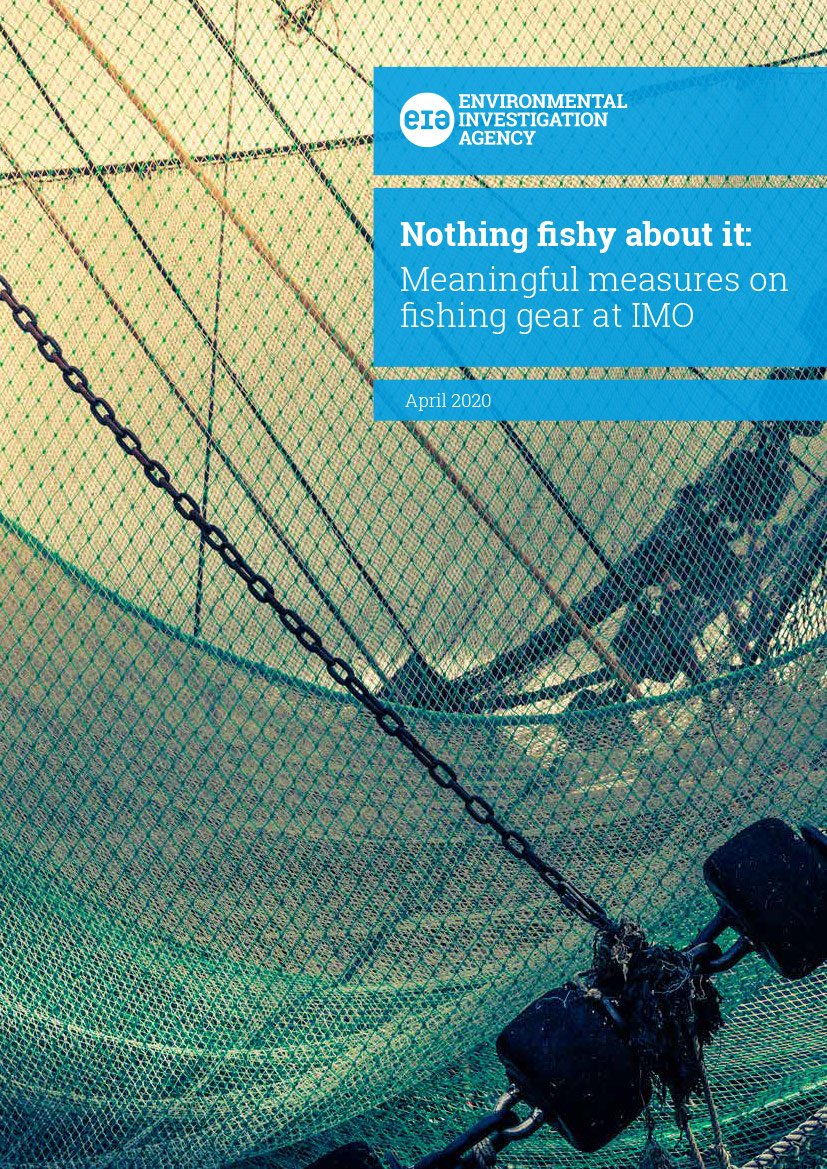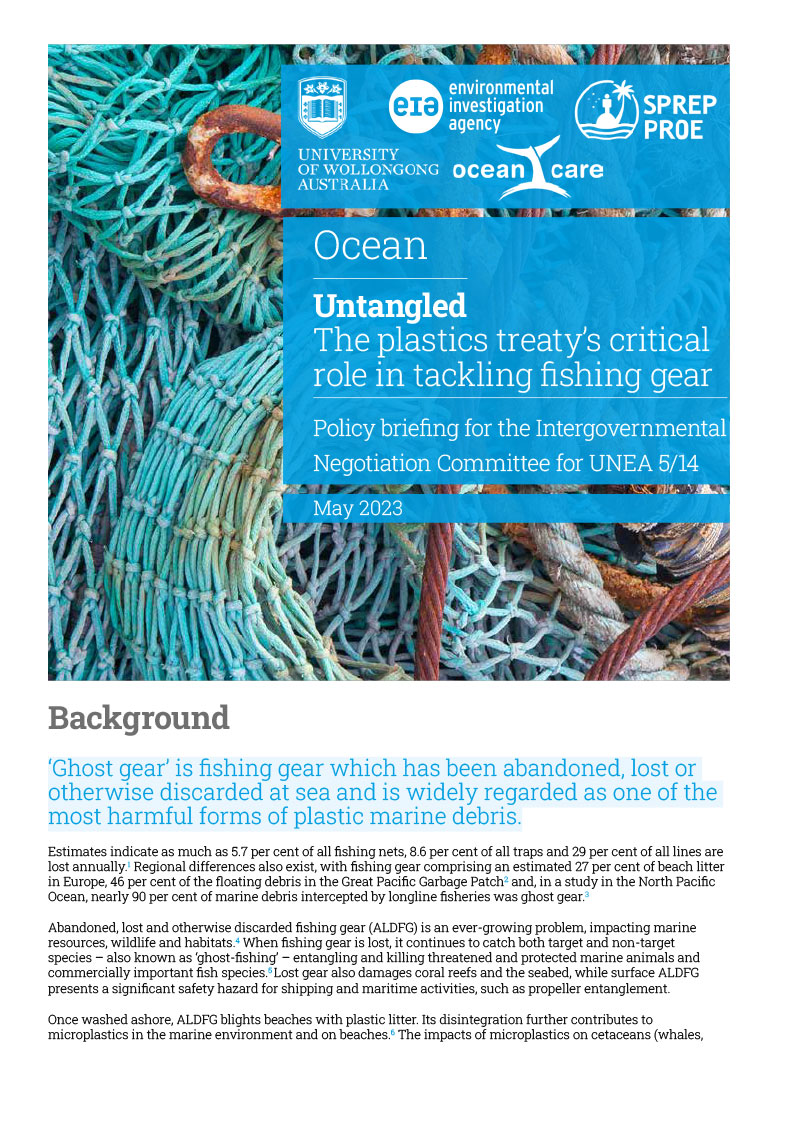Around 20% of the plastics we find on beaches or floating in the ocean originate from activities at sea – primarily from fishing, shipping, offshore industries and tourism. The problem of plastic pollution far out in the ocean can seem out of sight, out of mind, but the devastating impacts on the marine environment are plain to see.
While there has been a big focus on expensive solutions to remove plastic already present in the ocean, by far the most meaningful way to tackle pollution is stopping it in the first place through preventative actions. In the case of sea-based plastics, improved cooperation between the bodies responsible for pollution from shipping and fisheries is urgently required.
As part of our work on international plastics EIA are advocating to strengthen coordination and ambition around tackling the most problematic sea-based sources of plastic pollution at the International Maritime Organization (IMO) and the Food and Agricultural Organization of the United Nations (FAO), while ensuring this work compliments global efforts to address pollution throughout the lifecycle of plastics.
Ghost Gear
Of all the sources of sea-based debris the most common – and also the most harmful – is lost and discarded fishing gear, also called ‘ghost gear’. At least 640,000 tonnes enters our oceans every year and ghost gear makes up approximately 10% of global marine plastic pollution, though in some areas it is closer to half. As fishing gear is designed to catch and kill, once lost in the marine environment it can continue to fish, in addition to smothering reefs, trapping animals and posing a navigational risk to vessels.
Our new briefing ‘Nothing Fishy About It’ highlights the action we’re hoping to see at IMO to meaningfully tackle the threat of ghost gear.
Untangled
Abandoned, lost and otherwise discarded fishing gear (ALDFG) is an ever-growing problem, impacting marine resources, wildlife and habitats. When fishing gear is lost, it continues to catch both target and non-target species – also known as ‘ghost-fishing’ – entangling and killing threatened and protected marine animals and commercially important fish species. Lost gear also damages coral reefs and the seabed, while surface ALDFG presents a significant safety hazard for shipping and maritime activities, such as propeller entanglement.
Action needed from IMO
In the blog Ghosts in the Ocean, EIA’s Senior Ocean Campaigner, Christina Dixon, talks about why it’s time for IMO to take the plunge on addressing plastic from fisheries.


